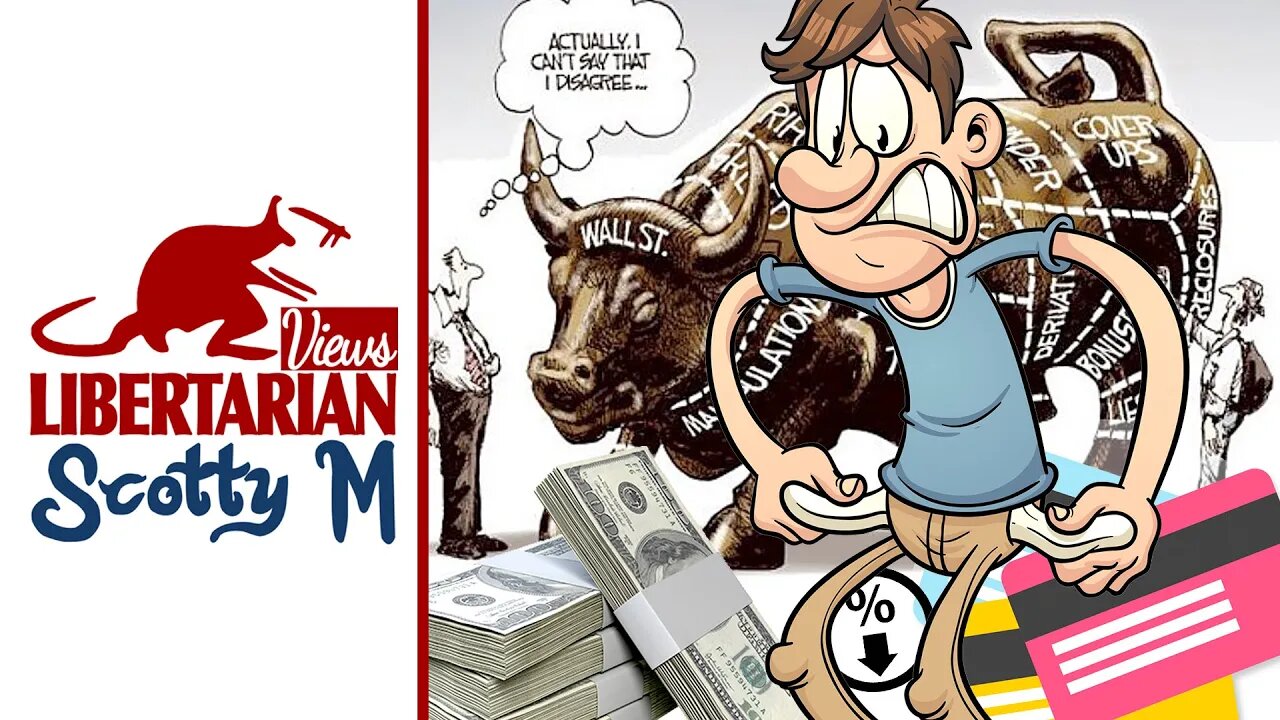Premium Only Content

A Future Beyond Capitalism: Debunking Second Thought Part 2
In this second part on a future beyond capitalism debunking Second Thought, I refute his arguments on the exploitation, his misinterpretation of what wealth is and his deeply flawed view of workers owning the means of their own production.
Second Thought, in other words, believes in workers co-ops, but if you analyse socialists arguments on workers co-ops they speak about personal ownership, which again, defies everything communal ownership stands for.
He then mentions about unemployment claiming that it is somehow beneficial for capitalists and the minimum wage and yet again, people like Second Thought fail to acknowledge that minimum wage workers are not supposed to get paid much higher than they currently are based on market value, they're entry level jobs. Once you argue about skilled labour, the argument is turned over on its head and capitalists have to compete for skilled labour.
I acknowledge we live under a corporatist system, he doesn't, he thinks this is capitalism. Whilst there is a level of exploitation, it is the capitalist system that can reduce that problem.
His argument on a future beyond capitalism he talks about increasing prices of goods and services, but fails to acknowledge the private sector has had the backside ripped out of it through strong government regulation. This also relates to his ignorance to think he can argue with the laws of supply and demand, which is proof he doesn't understand what prices are.
Second Thought then makes the fallacious argument that if workers are not getting paid enough then no one would be able to afford to buy anything. The truth is, this is overly simplistic, he doesn't understand that each individual company have their own niche of who their target market is. Whilst there are companies who sell expensive goods, their target market would be aimed at the higher end, those who have a lot of money to spend, there are a variety of others who sell cheaper goods.
He doesn't acknowledge the fact companies can only sell if they have a consumer base there who are willing to part with their money in exchange for such goods. If nobody was able to afford such goods, the company would be forced to reduce their prices as they are not selling such goods.
Even if you go down the road of his argument, his socialism would be left running the printing press which would drive inflation soaring through the roof, which is laughable, as I pointed out, there are consequences for his actions and this is the prime example of the difference between his theoretical nonsense of socialism to the real world of socialism in practice.
He then has the audacity to touch upon the booms and busts that were caused by the artificially low driven fixed interest rates, which has nothing to do with capitalism. As I've mentioned, socialists like to pretend to you that socialism has no presence whatsoever in today's mixed economy and that all the problems you face today are all the fault of capitalism. The funny thing is, he concedes that the banks were issuing out cheap credit.
-
 12:34
12:34
Libertarian Scot
2 years agoFreedom: Refuting Vaush on Freedom
180 -
 LIVE
LIVE
Revenge of the Cis
1 hour agoEpisode 1440: Shake and Bake
1,025 watching -
 1:15:54
1:15:54
Awaken With JP
4 hours agoUSAID Bombshell - Things Will Never Be The Same - LIES Ep 77
22.5K11 -
 LIVE
LIVE
In The Litter Box w/ Jewels & Catturd
22 hours agoGov. Trudeau Agrees to Terms | In the Litter Box w/ Jewels & Catturd – Ep. 734 – 2/4/2025
5,202 watching -
 1:21:03
1:21:03
Russell Brand
2 hours agoBREAK BREAD EP. 13 - WESLEY HUFF
56.6K4 -
 2:08:22
2:08:22
The Quartering
4 hours ago20,000 Feds QUIT, DOGE Workers Lives At Risk, Trump Vs Dept Of Education, Brie Larson Based & More
64.4K43 -
 DVR
DVR
vivafrei
17 hours agoLive with Enrique Tarrio! Jan. 6 Lawfare ON STEROIDS! Proud Boys & Beyond!
67.3K25 -
 LIVE
LIVE
Savanah Hernandez
1 hour agoEl Salvador offers to take in U.S. prisoners while Elon’s autists take on the deep state
467 watching -
 7:12
7:12
Tactical Advisor
3 hours agoBudget 2011 That Uses Glock Mags?! | Fusion Firearms 2025
292 -
 58:19
58:19
Ben Shapiro
4 hours agoEp. 2131 - Trump and Musk Bring The CHAINSAW
67.1K36